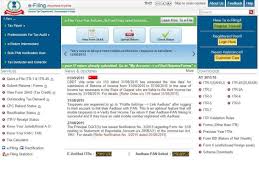 A new provision for secondary adjustment in transfer pricing, announced in the Union Budget for 2017-18, is likely to affect the cash flow of multinational corporations (MNCs) and the dividend distribution tax paid by their Indian subsidiaries. The provision has also sparked worry on Minimum Alternate Tax (MAT) and service tax payable by the subsidiaries, as well as retrospective implementation from 2013-14. Experts claim the provision is in line with the norms of the Organisation for Economic Co-operation and Development (OECD) —but its wording is giving rise to apprehension.
A new provision for secondary adjustment in transfer pricing, announced in the Union Budget for 2017-18, is likely to affect the cash flow of multinational corporations (MNCs) and the dividend distribution tax paid by their Indian subsidiaries. The provision has also sparked worry on Minimum Alternate Tax (MAT) and service tax payable by the subsidiaries, as well as retrospective implementation from 2013-14. Experts claim the provision is in line with the norms of the Organisation for Economic Co-operation and Development (OECD) —but its wording is giving rise to apprehension.
Transfer pricing is the value at which companies trade products, services or assets between units across borders, a regular part of doing business for a multinational.
A primary adjustment is made, by tax administration, to company´s taxable profits on transactions with an associated enterprise in a secondary jurisdiction.
At present, there is only primary adjustment on transfer pricing of an MNC´s subsidiary.
This means if the subsidiary concerned agrees to the tax adjustment provided by an assessment officer, or on its own makes such an adjustment, it will pay taxes on that amount.
For instance, a company claims it has earned Rs.400 crore, and the transfer pricing officer claims it has earned Rs.600 crore, using the arm´s length principle.
If the company agrees to the assessment and pays tax on this, it is called primary adjustment.
Under the existing law, the additional Rs.200 crore would not need to be shown in the books of the company.
A secondary adjustment arises when simultaneous changes are made in the books of accounts of the company as well. This is what new provision aims at —the additional Rs.200 crore would also have to be shown in the books of the Indian subsidiary of MNC concerned.
“The parent company might not want to part with this Rs.200 crore, as the subsidiary in India might not be significant for its strategy,” said Eric Mehta, partner, transfer pricing, PwC India.
“An MNC might have a global presence, with India only a small part of its affairs.” Sending the money to India would also face hurdles because of lack of a contractual arrangement, said Amit Maheshwari, partner, Ashok Maheshwary and Associates.
He added it would have an adverse effect on the cash flow and business operations of MNCs.
If the Indian subsidiary concerned does not get the required amount, say Rs.200 crore, within a stipulated period, it would be considered a loan to the parent or associate, attracting interest.
(The time period has not been specified in the Budget documents.) “In case, the total amount is brought to the books of the Indian company, it will give rise to higher dividend, which in turn, will give rise to higher dividend distribution tax,” said Mehta.
Also, if the payment is towards services rendered by Indian subsidiaries, the higher receipt in books will give rise to higher service tax liability, added Mehta.
Maheshwari said higher receipt and hence profit in the books would also give rise to MAT as profit on the additional income, in this case Rs.200 crore, was not shown earlier in the books earlier.
It should be noted that MAT is applicable to book profits.
All this will, however, only apply if the primary adjustment of the Indian entity exceeds Rs.1 crore the previous year —along with other conditions.
The provision has also given rise to fear of retrospective application, as the condition of primary adjustment exceeding Rs.1 crore is effective from April 1, 2016 or previous years.
Currently, the assessment of 2013-14 is underway for transfer pricing purposes, said Mehta, pointing to the possibility of secondary adjustments made from that year.
He agreed the purpose of the provision might not be to have retrospective effect, but the wording does not prevent it.





